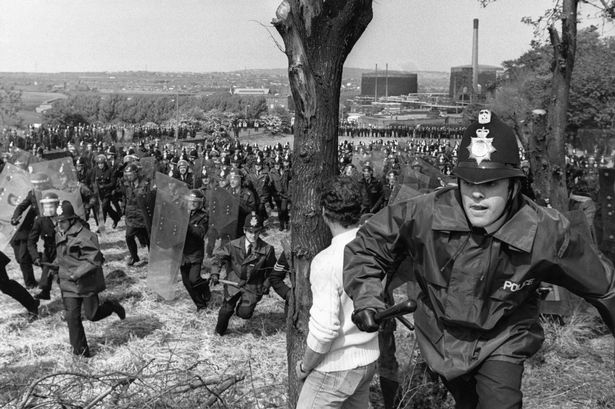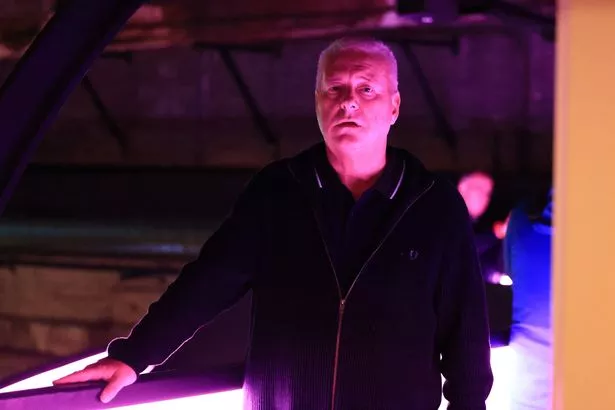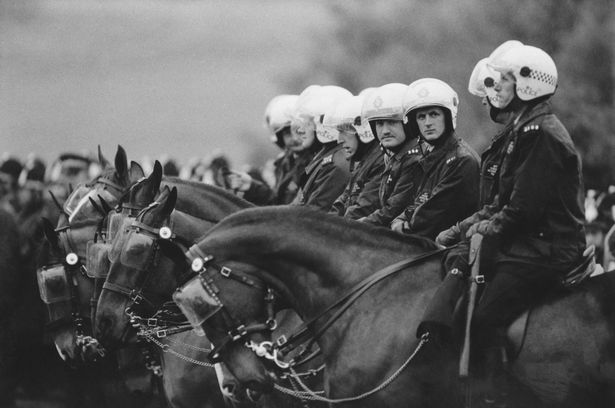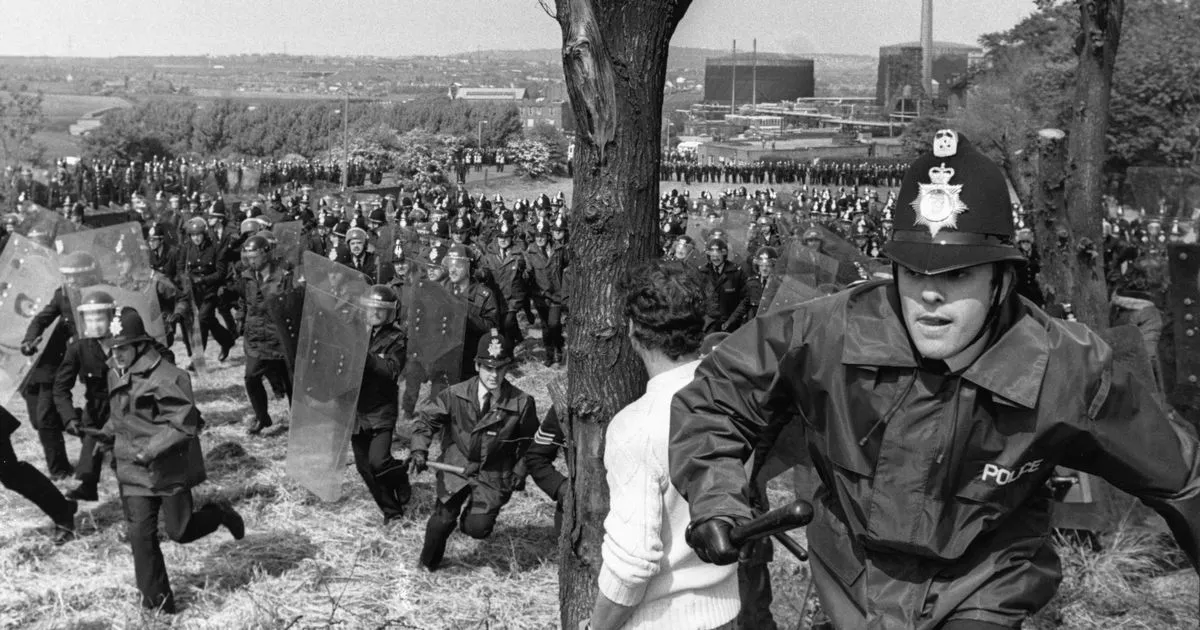Northumbria Police has admitted documentation was destroyed just last year Thousands of striking miners picket outside the Orgreave coke works near Rotherham
Thousands of striking miners picket outside the Orgreave coke works near Rotherham
Northumbria Police’s decision to dispose of documents relating to the Battle of Orgreave is “deeply worrying”, the Commons Leader said today. In one of the darkest days of the year-long miners’ strike riot police clashed with thousands of striking miners at the Orgreave coking plant in South Yorkshire on June 17, 1984.
What became known as the Battle of Orgreave resulted in 95 miners, including four from County Durham, facing serious criminal charges. But their trials collapsed when it became clear police evidence was unreliable with allegations of fabrication and perjury. While campaigners say some of the thousands of officers drafted in to police the picketing used excessive violence with mounted officers charging at the miners.
In the run-up to last year’s General Election the Labour Party made a commitment to hold an inquiry into what happened at Orgreave in its manifesto. But now as miners and their family await answers and and justice it has been revealed that Northumbria Police has destroyed all documents relating the Orgreave and the strike just last year.
Today the Leader of the House of Commons, Lucy Powell said said anyone involved in the strikes “must retain the records” and come forward with information when asked to, after Blyth and Ashington MP Ian Lavery raised concerns. Speaking during business questions, Mr Lavery said it was “extremely disturbing news that Northumbria Police has destroyed all documents relating to the miners’ strike, including Orgreave”.
 Blyth and Ashington MP Ian Lavery(Image: Newcastle Chronicle)
Blyth and Ashington MP Ian Lavery(Image: Newcastle Chronicle)
He said: “It is absolutely alarming. The Labour Government have pledged an inquiry through investigation into these events, yet the wanton destruction of this vital and critical evidence has been allowed to happen. Is this a sinister attempt to obscure justice? I’m not sure if anybody is prepared to answer that question. Who gave the permission to destroy these documents and what’s behind it?
“Can we have an urgent debate into how the Government can instruct all police forces, all authorities, everyone that holds any detail on the miners’ strike and on Orgreave (to) make sure that they retain and maintain that evidence, for when the Labour Government maintains its pledge for an inquiry into the events that happened in 1984. Because justice cannot be served if the evidence is systematically and deliberately destroyed.”
Ms Powell replied: “This sounds like a deeply, deeply worrying development in this case, and I am sure the whole House will be shocked to hear it. He has campaigned for justice and for answers in relation to what happened at Orgreave, 41 years ago, raised it with me last week. I will continue to raise that with ministers on his behalf. And I would join him in saying to people, anyone involved, that they must retain the records and they must come forward, as they would be expected to do when those questions are asked, with every bit of information they’ve got on what happened.”
In December 2016 the Home Affairs Select Committee (HASC) requested that all police forces who were involved in policing at Orgreave submitted any information they held to South Yorkshire Police for archiving ahead of an inquiry. At that time Northumbria Police’s Chief Constable confirmed the force did have relevant documents and outlined what they were. They are said to have included papers covering the “management and logistics” of the deployment of the Police Special Units in South Yorkshire, a report by a Superintendent regarding the organisation and timetable of June 18 1984 at the Orgreave coking plant as well as documents relating to the subsequent handling of one of the most violent assaults by a police officer on a miner, captured by national television crews.
But the Orgreave Truth and Justice Campaign discovered that Northumbria Police had destroyed all remaining papers associated with Orgreave and the strike, in April 2024, throw a Freedom of Information (FOI) request.
 Mounted riot police at the miners’ demonstration at Orgreave colliery, Yorkshire, where miners picketed the mine, 2nd June 1984. Soon afterwards, the ‘Battle of Orgreave’ took place
Mounted riot police at the miners’ demonstration at Orgreave colliery, Yorkshire, where miners picketed the mine, 2nd June 1984. Soon afterwards, the ‘Battle of Orgreave’ took place
The campaign’s secretary, Kate Flannery, said: “This is extremely disturbing news. We are now understandably worried about how many other police forces may have recently destroyed or intend to destroy important information that would be very relevant in an Orgreave inquiry or investigation.”
And Kevin Horne, a miner arrested at Orgreave said: “Any argument that documents and records were simply destroyed on the basis of time passed does not make sense given that Northumbria police and other police forces had by April 2024, already kept the documents for nearly 40 years.”
Mr Lavery said it was essential that the full truth of what happened at Orgreave more than 40 years ago was revealed.
He added: “The truth is always important People need to understand how things like Orgreave have happened. There’s miners up and down this country who were at Orgreave who were beaten and who were arrested. They would like to see the truth come to the fore.
“The truth should come out and justice should be served for the miners. It was brutal.”
A Northumbria Police spokesman said: “We can confirm two boxes containing data in relation to the Miners’ Strike were disposed of in April 2024 following a formal review, retain or disposal process in line with force policy and the Data Protection Act 2018.”
